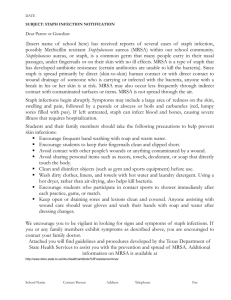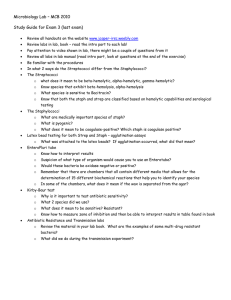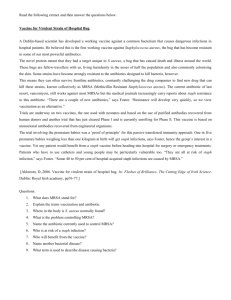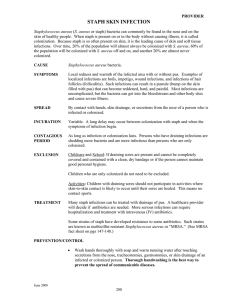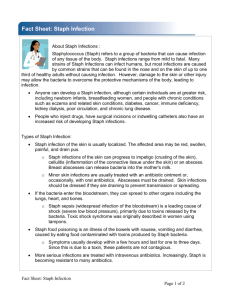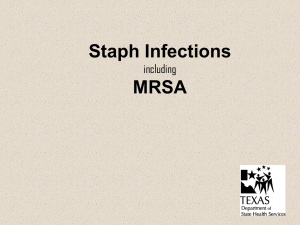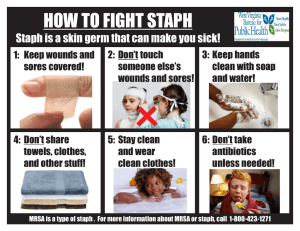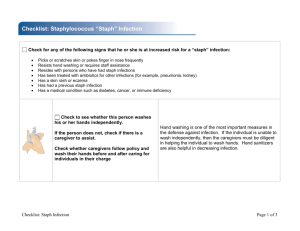Staph Infections and Resistant Staph Infections What is Staph
advertisement
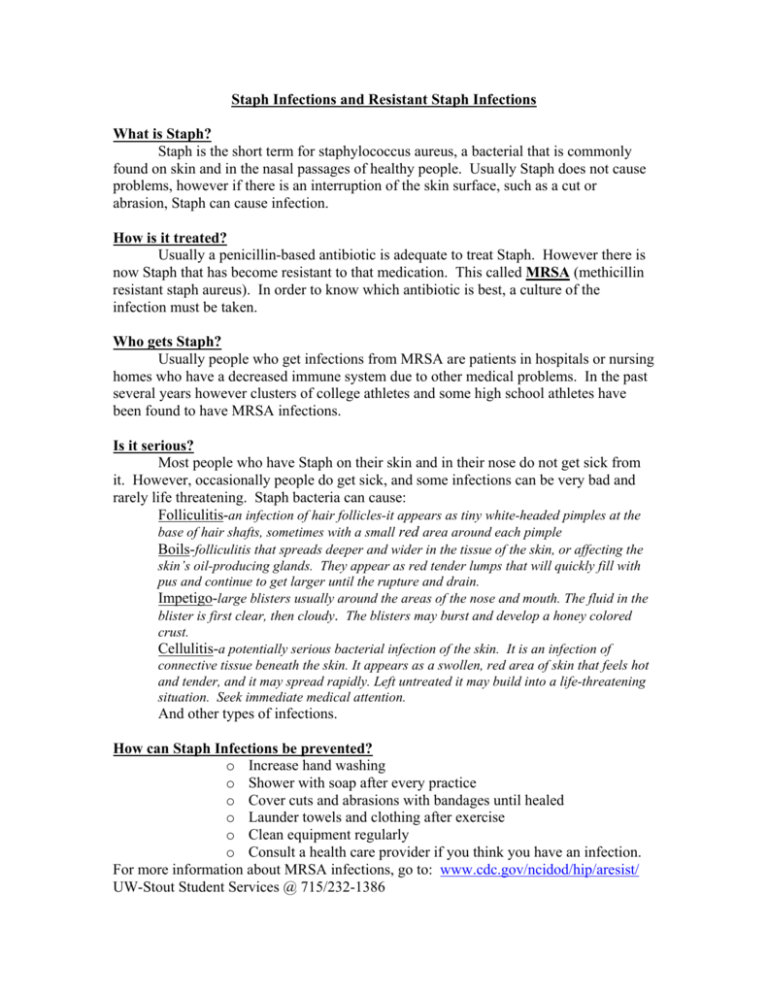
Staph Infections and Resistant Staph Infections What is Staph? Staph is the short term for staphylococcus aureus, a bacterial that is commonly found on skin and in the nasal passages of healthy people. Usually Staph does not cause problems, however if there is an interruption of the skin surface, such as a cut or abrasion, Staph can cause infection. How is it treated? Usually a penicillin-based antibiotic is adequate to treat Staph. However there is now Staph that has become resistant to that medication. This called MRSA (methicillin resistant staph aureus). In order to know which antibiotic is best, a culture of the infection must be taken. Who gets Staph? Usually people who get infections from MRSA are patients in hospitals or nursing homes who have a decreased immune system due to other medical problems. In the past several years however clusters of college athletes and some high school athletes have been found to have MRSA infections. Is it serious? Most people who have Staph on their skin and in their nose do not get sick from it. However, occasionally people do get sick, and some infections can be very bad and rarely life threatening. Staph bacteria can cause: Folliculitis-an infection of hair follicles-it appears as tiny white-headed pimples at the base of hair shafts, sometimes with a small red area around each pimple Boils-folliculitis that spreads deeper and wider in the tissue of the skin, or affecting the skin’s oil-producing glands. They appear as red tender lumps that will quickly fill with pus and continue to get larger until the rupture and drain. Impetigo-large blisters usually around the areas of the nose and mouth. The fluid in the blister is first clear, then cloudy. The blisters may burst and develop a honey colored crust. Cellulitis-a potentially serious bacterial infection of the skin. It is an infection of connective tissue beneath the skin. It appears as a swollen, red area of skin that feels hot and tender, and it may spread rapidly. Left untreated it may build into a life-threatening situation. Seek immediate medical attention. And other types of infections. How can Staph Infections be prevented? o Increase hand washing o Shower with soap after every practice o Cover cuts and abrasions with bandages until healed o Launder towels and clothing after exercise o Clean equipment regularly o Consult a health care provider if you think you have an infection. For more information about MRSA infections, go to: www.cdc.gov/ncidod/hip/aresist/ UW-Stout Student Services @ 715/232-1386

